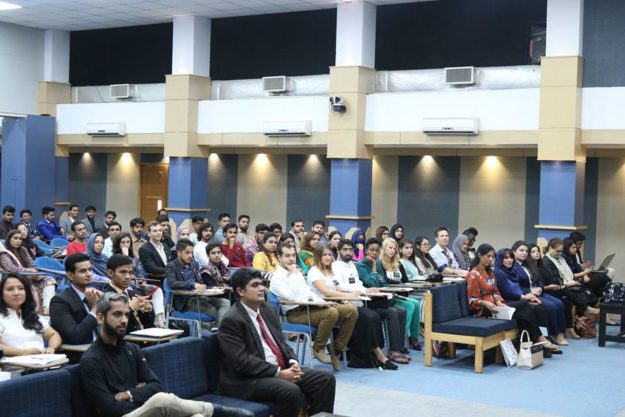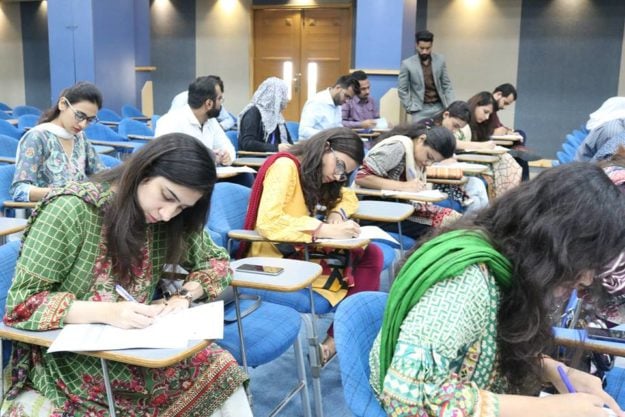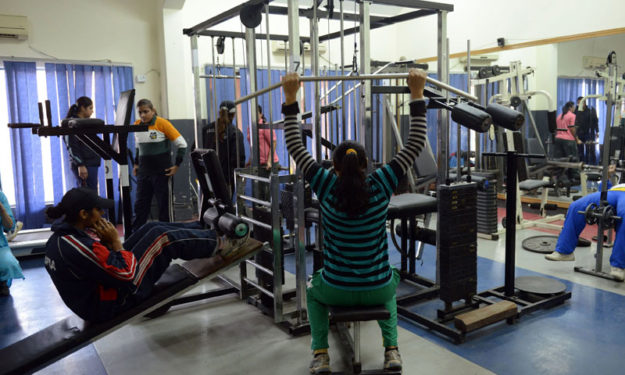Choosing a college: 10 factors to consider
Check out these crucial factors that will get you up to speed with your university selection process

Choosing a university is the most important decision of your life which is why you should give yourself ample time for research before you sign up for anything. You should not procrastinate the research and then on the eleventh hour, pick an institution for arbitrary reasons like all of your friends study there or it has a good party crowd; the next four years of your life will change you more than all of your school years combined.
- Budget
The most crucial factor that you, as parents and students, must be agonizing over is the tuition fees. Although living expenses are a relatively smaller chunk, on its own they dig quite a big hole in your pocket. If you bank on practicality, you would ensure that you have enough money to sustain you through the course of the degree before you pay your admission fees.

Hence, do not get hung up on the “sticker price” of universities; you need to dig deeper. Call the Admissions Office and the Office of Scholarships and Financial Aid of the respective institution and find out if it provides any programs, scholarships, grants, need-based financial assistance or merit aid that can bring the cost down.
- Location
This is not school where you will spend six hours and then unwind in the comfort of your house. Even if you are a day scholar, you spend a large part of your day in the university; so much so that most of your weekend activities come to centre around this place. If you want to enjoy the next four years of life, make sure you give some thought to the city and the area in particular that you chose. If you want to minimise the commuting distance from your house, look for universities that have multiple campus locations in the same city.

- Market standing
You must judge the credibility of the institution and the value of the degree it offers by its ranking. For international universities, you should check out QS world rankings and for Finance and Business degrees you need to resort to Financial Times Rankings. When it comes to Pakistani universities, we have the Higher Education Commission and Pakistan Engineering Council approved list. In addition to that, verify the university's certifications from local bodies. For example, Iqra University has been ranked the best private sector university in Sindh by Census Economic Information Center.
- Post-graduation opportunities
It won’t be long before you will be attending your graduation ceremony, saying goodbye to your friends and encircling job advertisements. Find out if the college has programs in place to assist students with securing internships and job post-graduation. Many colleges will go to great lengths to ensure their students are placed in a position after college, while others believe the career opportunities available to their graduates is not their headache.

- International collaborations
Local universities are increasingly collaborating with notable universities abroad through student-exchange initiatives, joint-degree programs and skill-based learning ventures. This not only minimises the cost that students have to bear for acceding a global program, it also gives them an edge over their peers.
- Student experience
You should not evaluate the university exclusively on academic metrics. The more established and resourceful universities offer a plethora of entertainment and leisure activities for their students ranging from extra-curricular campus events, local and international tours and concerts. Students are imparted with a great deal of leadership skills because they organize most of the university events through student led clubs and societies.

- Discipline and security
In countries like Pakistan, where a feeling of uneasiness stays with you even if you are in the ‘safe’ confines of your home, the level of security that your university promises is a paramount concern for your parents. You can surmise the degree of security that the university promises by its disciplinary policies, the vicinity it is located in and the amount of freedom it allows its students.
- Curriculum
Our economy suffers from a great deal of mismatch between the demand and supply of labour whereby companies claim that even though the applicants have the requisite qualifications, they lack skills that are essential for the particular industry. Hence, universities should align the curriculum with the needs of the industry by establishing a constant dialogue with the movers and shakers of the corporate world.

- Infrastructure and facilities
There is an established positive correlation between efficient and extensive facilities offered to students and their overall performance. These should include peer support and tutoring programs, disability liaison programs, counselling and career services, financial assistance and clubs and societies. Moreover, universities should also host sports arenas, gymnasiums, science and computer laboratories, state of the art libraries, comfortable cafeterias and rec-rooms and auditoriums.

- Faculty
This should be the primary metric for a student; even more so than the budget because after all the faculty will determine the kind of education you will receive over the next few years. While looking up the credentials of the teachers will guide your expectations to some extent, you should also research on their any alternative professions that they may pursue. A strong faculty repertoire will include individuals from the corporate sector, the educational field, the realm of science and engineering and the vast arena of humanities.

1641820560-0/download-(2)1641820560-0-100x90.webp)


















COMMENTS
Comments are moderated and generally will be posted if they are on-topic and not abusive.
For more information, please see our Comments FAQ